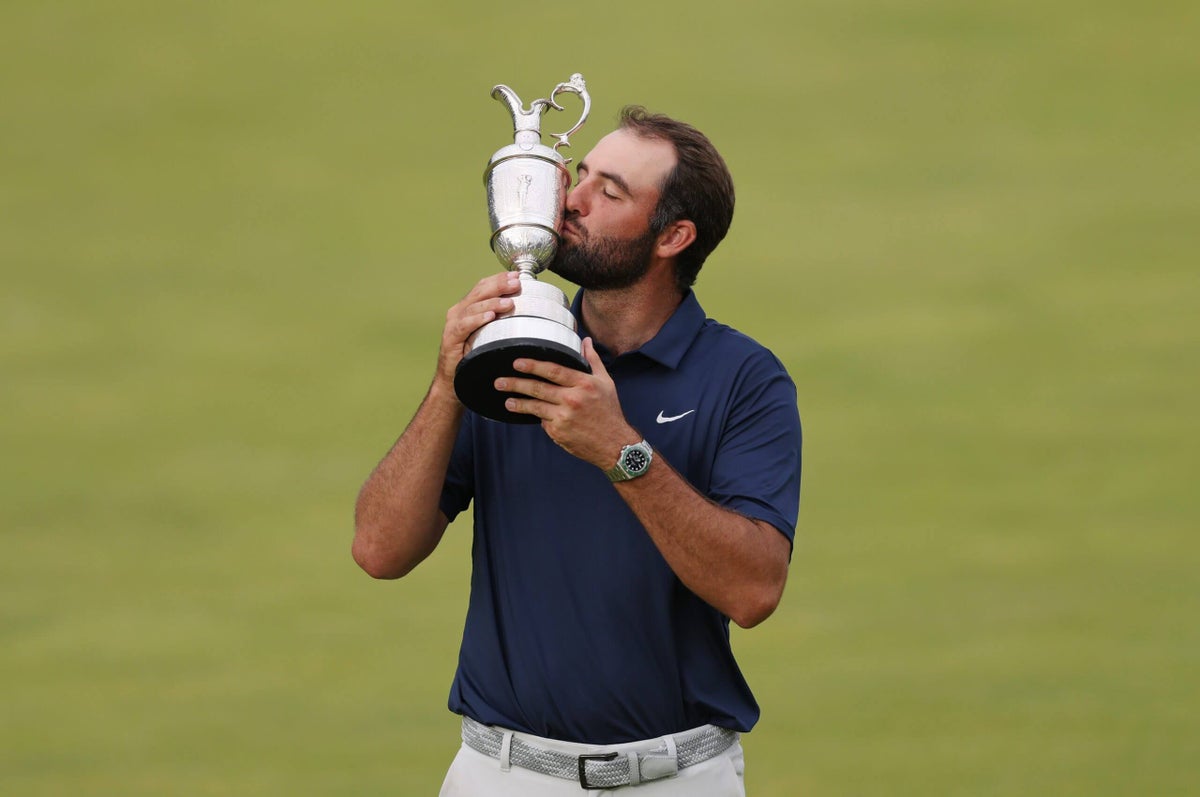It’s no secret Scottie Scheffler is the best golfer in the world and has been for quite some time. He has been ranked No. 1 in the Data Golf world rankings every week since early September 2023, and his current rating is the best by anybody since Tiger Woods’ untouchable 2000 season. After wrapping up his fourth career major — and second of the 2025 season — with a win at the Open Championship on July 20, Scheffler finished one of the all-time seasons at the major championships in style. Now he’ll try to become the first player ever to defend his FedEx Cup crown as we head down the home stretch of the PGA Tour schedule.
That’s all pretty impressive stuff, even though Scheffler tends to shy away from the all-time comparisons. But did you know Scheffler also doubles as a high-yield retirement fund? If you’d timed things right at the start of his peak, you could have beaten the stock market — by a lot — just by betting on Scheffler to win every time he teed it up.
There’s a good case to be made that Scheffler himself is the greatest growth stock in sports. That’s why we’re introducing the SCOTTIE index — aka the Scheffler-Centric Outperformance Tracker for Tournament Investment Efficiency — a hypothetical fund based solely around betting on Scheffler to win golf tournaments.
Here’s how it works: We’ll track how much in net profits an investor would have made if he or she had either:
- Bet $100 on Scheffler to win any tournament he entered (including team events such as the Zurich Classic), priced at the closing odds listed on Data Golf’s leaderboard pages.
- Invested $100 in the S&P 500 whenever Scheffler plays a tournament, at the index’s closing value on the last previous trading day before the end of the tournament (usually a Friday).
Early in Scheffler’s PGA Tour career, this would admittedly not have looked like a great financial plan. He didn’t win any of his first 60 tournaments after joining the Tour full-time in 2019-20, so a bet-100-bucks-each-time-he-plays strategy would have left you $6,000 in the hole at the low point of that drought, if you’d bet on every tournament in that span.
However, once Scheffler began to hit his stride, the money started to stack up.
You could have made back $2,425 on a $100 play when he won the 2022 WM Phoenix Open at +2425 odds — and by the end of his stretch of four wins in six tournaments early that year, culminating in his first major W at the Masters, you would have actually been up $1,775 despite the early losses. And that’s if you began using the SCOTTIE index when he made the leap from the Korn Ferry to the PGA Tour in 2019. If you’d waited a few years to start playing, you could have really made bank.
If someone bet $100 on Scheffler to win every tournament he entered since the beginning of the 2022 season, they would currently be up by a cumulative total of $8,964 after banking another $487 with Scheffler’s win at the Open Championship. That’s a 101.9 percent overall return on our $8,800 total investment in the SCOTTIE index — or a 20 percent compound annual growth rate, more than doubling our money in just under four full seasons of action.
By comparison, our alternative investor who dropped $100 in the S&P 500 every time Scheffler teed it up would currently be up just $3,092 on that $8,800 investment. A 35.1 percent overall return on investment is nothing to sneeze at — it’s an 8.2 percent annual growth rate, which is respectable in any portfolio — but it’s not quite a SCOTTIE-level return.
Sure, betting on golf winners is what the pros call a “high-volatility” asset class. The $487 net profit we would have earned from the Open is indicative of how the SCOTTIE index is also experiencing diminishing returns lately. Oddsmakers have caught up to his dominance, so his odds have shortened accordingly — the more he wins now, the less you win when he wins. ($7,250 of our entire profits came through his win at the Players’ Championship in March 2023.)
But still, Scheffler has won 24 percent of the events he’s entered since the start of 2022, a rate that is comparable to Woods’ (him again!) and well ahead of any other contemporary golfer on the all-time list. With a 67 percent success rate at converting 54-hole leads (or co-leads) to victories — and a current streak of eight in a row — plus no finishes outside the top eight since March 16, he is as solid an investment as it gets in the sport.
That’s true even if the SCOTTIE index is meant to be a bit of silly fun — obviously, this isn’t a recommendation to liquidate your 401(k) and go all in on outright golf bets. But it says a lot about how dominant Scheffler’s been lately that he has basically run out of other pro golfers to beat. Now he’s beating the market, too — and by roughly as comfortable a margin as he laid on the field in his two major wins this year.
(Photo: Andrew Redington / Getty Images)
